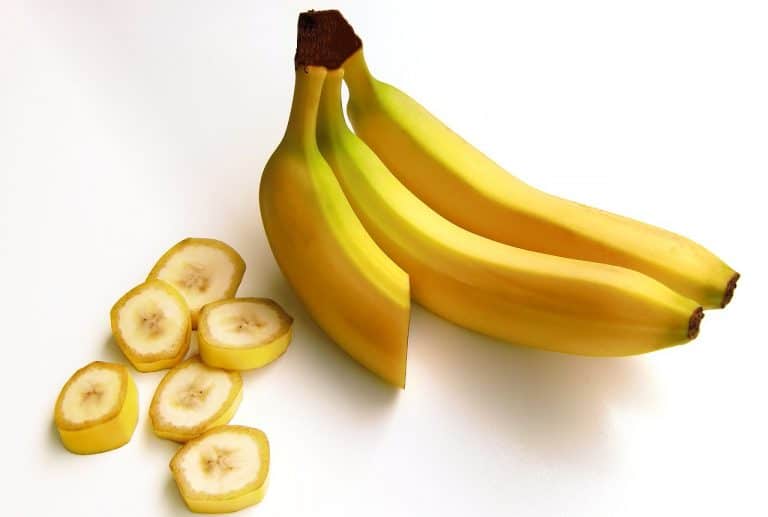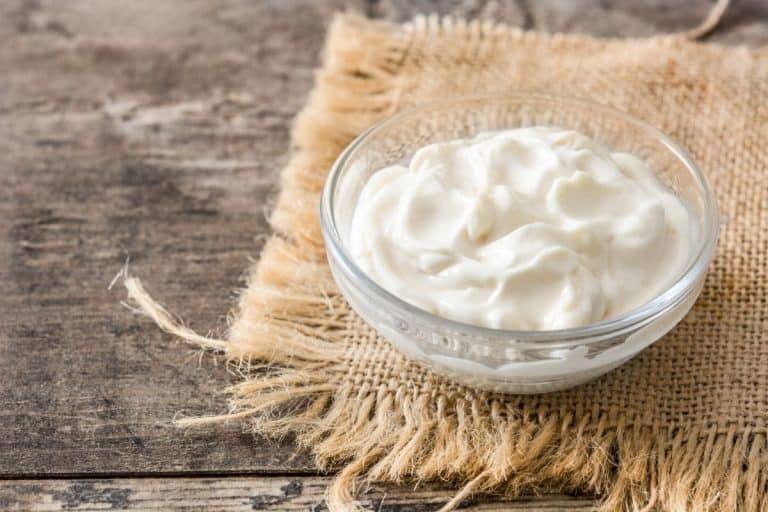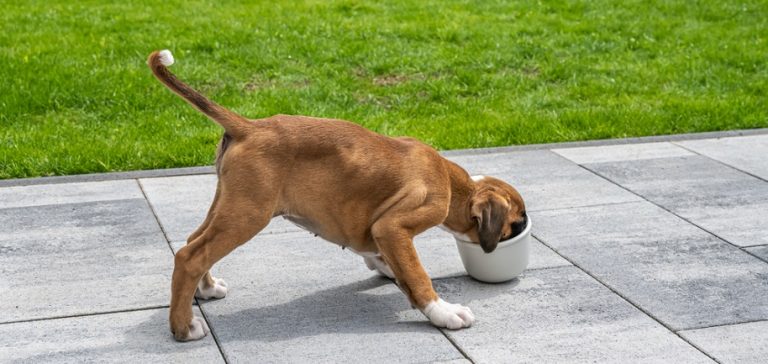How Much Salmon To Feed A Dog – Is Salmon Good For Dogs?
Salmon is a popular and tasty fish that many of us enjoy. Dogs enjoy it too as many commercial dog foods are made with salmon. But is salmon good for dogs?
If you have never fed your dog salmon before you may be wondering. “how much salmon to feed a dog?”
Dogs can eat salmon safely, but it must be properly prepared. There are a lot of beneficial nutrients in salmon, but it is not a good idea for dogs to consume raw salmon as harmful bacteria may affect their health.
There are also minerals and vitamins that your dog needs in salmon like omega-3 fatty acids that give them a healthy immune system.
Another thing you should be careful about is the bones that are in salmon. Be careful the bones do not injure your dog as he is consuming it.
If you want to give salmon to your dog you should think about incorporating it into his diet once per week.
Salmon can help your dog’s coat to look shiny and also decrease inflammation. It is also high in protein.
How Much Salmon Should I Feed My Dog?
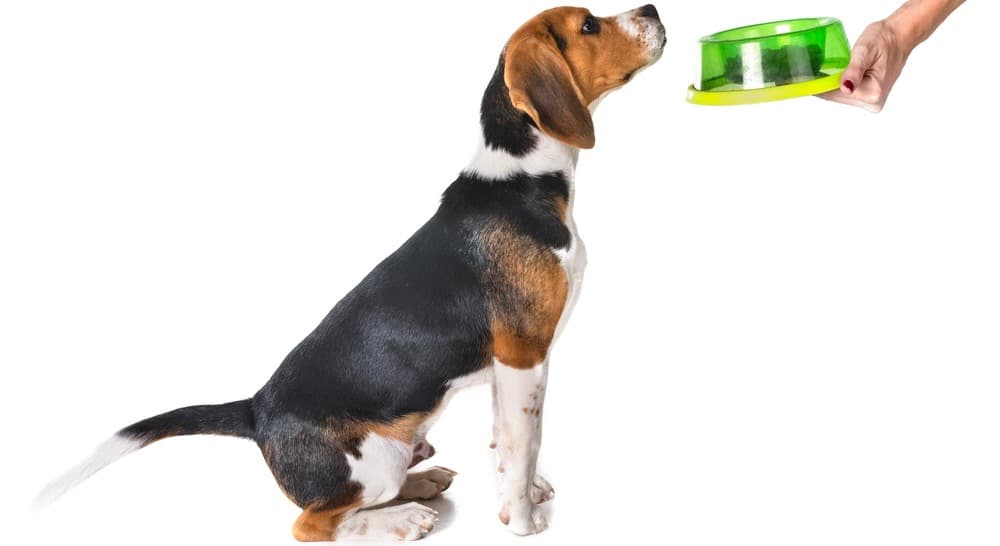
To keep your dog healthy it is a good idea to feed him only a little salmon every day. But if salmon will encompass the majority of his meal then you should feed him salmon about once per week.
Salmon that is used as a dietary addition can be given to your dog every day if the proportion of 10% of his meal.
Even though salmon is good for your dog, the problem is that it contains fats and oils that should not be consumed every day. It could cause your dog to gain weight.
The high-fat content can lead to your dog’s obesity and other harmful diseases.
A good estimation would be 100 grams for every 10 pounds your dog’s weight of salmon. As long as you feed him and moderation, this should not be an issue.
Also, remember to engage your dog and exercise to make sure he drinks adequate water.
Is Salmon Good For Dogs?
It is not as if cooked salmon is particularly dangerous for your dog to consume, however, it is not a good idea to switch out a balanced diet for a new salmon one.
The good thing about commercially available food is that (for the most part)they have done their due diligence and created products that are balanced so that your dog can survive on kibble or wet food alone.
So if are you are considering salmon as an option in your dog’s diet, you should understand that doing this could potentially put the diet off balance. Adding salmon must be done carefully and with great consideration.
That said, there is no doubt that your dog would benefit from the omega-3 fatty acids.
Additionally, younger dogs get help with their brain development making them better able to concentrate. It is also great for dogs who suffer from allergies and skin irritation.
How To Cook Salmon Safely For Your Dog
To be safe for your dog’s consumption you must cook the salmon thoroughly making sure that it reaches a minimum internal temperature of 145 degrees Celsius.
The fish fillet must be completely deboned, and you can cook it simply in steam, poach, or broil method.
It is also a good idea to make sure that you completely remove the skin so that extra fat will be eliminated.
You may be tempted to add seasonings like onion, garlic, pepper along with butter, oil, or salt, but these things are not needed because they can add extra fat and cause health issues for your dog.
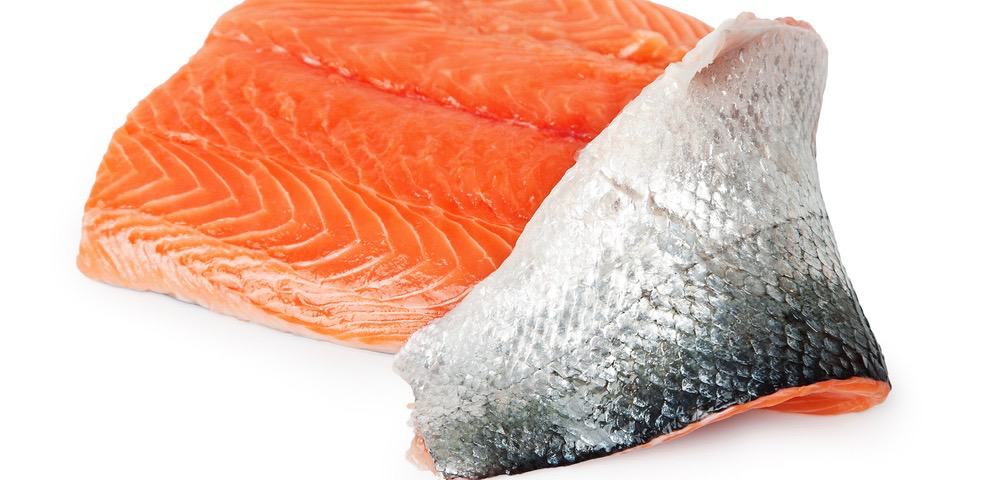
You do not need to impress your dog with all these extra ingredients. The natural taste of the salmon is good enough.
The most important thing is that the salmon should never be undercooked. Undercooked salmon can harbor a parasite called Neorickettsia helminthoeca which is poisonous to your dog.
In some cases, it can even be fatal. Undercooked salmon also contains harmful bacteria that can seriously affect your dog.
Additionally, there is also the issue of a small bone in raw salmon that can lodge itself anywhere along the GI tract and choke your dog.
To be extra careful you can select boneless skinless salmon fillets to lessen the chance of encountering small bones but always check for bones before and after cooking. Also, remember the food portion in an effort to preserve a well-balanced diet.
Signs Of Salmon Poisoning
One of the reasons people view salmon poisoning as so problematic is that your dog can go about a week without displaying any clinical symptoms.
This is why treatment and diagnosis are so difficult. Salmon poisoning is often misdiagnosed leading to further injury to your dog.
Another great area of concern is that salmon poisoning can also be spread to other dogs in the vicinity via feces. The most common symptoms you may notice are:
- Vomiting
- Rapid weight loss
- Swollen lymph nodes
- Lack of appetite
- Dehydration
- Diarrhea
- Lethargy
- Fever
What To Do If Your Dog Eats Raw Salmon
Do not waste any time! Take your dog to the veterinarian as soon as you possibly can if you suspect that he has salmon poisoning.
You can use any of the above symptoms as confirmation. The veterinarian will most likely take a fecal sample to identify parasitic eggs in his stool.
Another way of determining salmon poisoning is to collect a sample using a needle from his swollen lymph node.
If you detect salmon poisoning in time then the treatment is quite simple. The vet will advise you on a good antibiotic to kill the organisms that are responsible for the poisoning, along with a wormer that will eliminate the parasite.
There may also be the chance of IV fluid as a treatment for dehydration. These are effective treatments that show improvement within a few days.
What Are The Benefits Of Salmon For Your Dog?
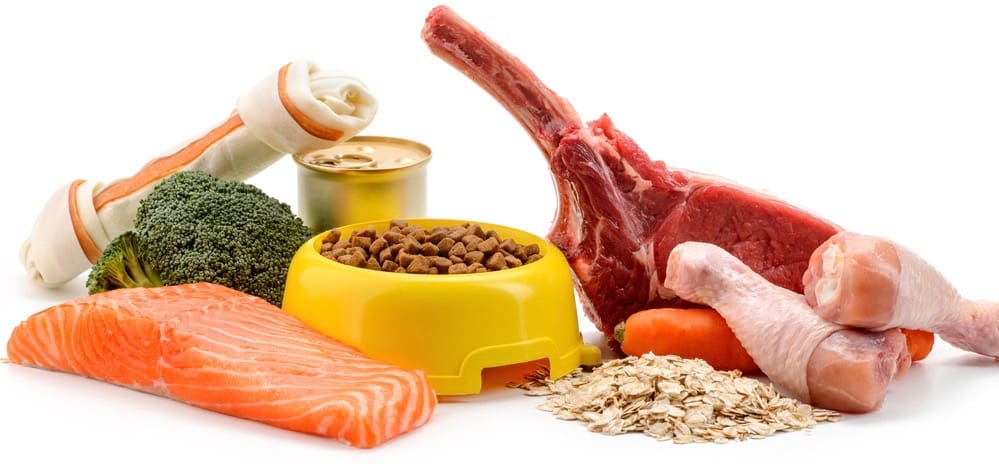
As we have stated, there are many benefits to eating salmon. It is a saltwater fish that can be found on the Californian Coast Alaska and the Pacific Northwest.
It is also quite versatile because it can be prepared in many ways for your dog. These are the main benefits of eating salmon:
- Can help with weight loss in dogs that are overweight
- Can help fight heart disease and reduce blood pressure
- Can assist with brain development with fetuses
- Helps to improve cognition in senior dogs
- Regulates the immune system
- Helps with kidney disease and other issues
- Reduces inflammation
- Healthy skin and coat
- Reduces cancer cells growth
- May prevent certain skin allergies
- Senior Dogs with joint issues
What Are The Risks Of Salmon For Your Dog?
You should give your dog salmon in moderation and always consult your veterinarian before making any changes to his diet. But when dealing with salmon always make sure that it is prepared properly.
Diseases would probably not affect all dog breeds in the same way but if you notice any of the telltale signs of salmon poisoning you need to act quickly. Early diagnosis can save your dog’s life.
Also, if your dog is choking you can try to open his mouth to remove the obstruction but if you are unable to do this, then you need to seek medical attention. The tiny bones in the salmon can do major damage.
Can Dogs Eat Canned Salmon?
Salmon from a can is safe for your dog. You can give your dog canned salmon on occasion as it is already cooked through, and the bones are soft.
The bones are so soft that they usually blend in with the flesh of the salmon causing issue for your dog.
That said, it is better to purchase salmon that is soaked in water rather than salmon that has been soaked in brine or oil because the salt content in the brine is harmful to your dog and the oil content is not good either.
Always give your dog low-sodium foods. If you have canned salmon that you would like to feed to your dog, you can always add a few flakes over his regular food to enhance the flavor.
Some people may have a preference for canned salmon because it is already prepared and reasonably safe for the dog to consume.
They don’t need to spend extra time cooking salmon in just the right way for their dog. Additionally, the canned salmon still has nutritional value that your dog can benefit from.
If you are watching your pennies then canned salmon may be the way to go as they are usually a bit more cost-effective.
On the other hand, the kind option typically has more additives than the time necessary to preserve the shelf life. These additives are not good for the dog and human health as they take their toll over time.
FAQ’s
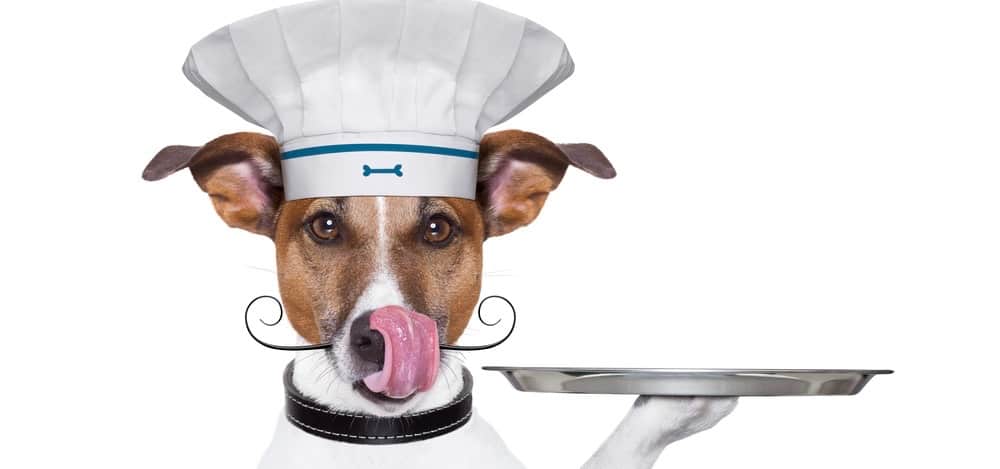
Can Dogs Eat Smoked Salmon?
This is a common question that many dog owners have because smoked salmon is quite different from cooked salmon. The best answer we can give is a no.
You should never feed your dog smoked salmon because it is cured and contain too much salt that could harm your dog.
There is also the issue of smoked salmon containing parasites that can lead to a fatal condition in dogs. It is better to cook your dog’s salmon safely and avoid smoked salmon at all costs.
Which Salmon is the Best?
Farmed and wild Chinook salmon is a great option if you want your dog to have the benefits of Omega 3 and 6.
Sockeye and coho salmon are also great options because they contain considerably more of these omega-3 and omega-6 fatty acids.
Incorporating just a small amount of this salmon into your dog’s diet reduces oxidative stress on his body. You can also reduce chronic disease and inflammation.
Is Organic Salmon a Better Option?
This is a great concern of many dog parents who want their dogs to have the best. In the United States, they do not certify “organic” seafood.
The fish that are sold as organic is labeled and imported based on International standards. These standards of feeding and farming may be quite different.
Wild-caught or farm-grown salmon can offer a lot of protein along with essential minerals and vitamins. the prophecy acids made differ based on the type of salmon.
Studies have shown that Chinook salmon grown on a farm has higher amounts of fatty acids than the wild Alaskan Chinook.
Can Dogs Eat Salmon Eggs?
If eggs are processed into caviar they are great for your dog to consume. However, many find caviar to be quite a luxurious and expensive dish.
It also has high amounts of salt and seasonings. This could be harmful to your dog so be careful. You can give this to your dog as a treat in extreme moderation.
Can Dogs Eat Salmon Skin?
Salmon skin is safe for your dog to consume, however, it may not be the healthiest thing that you can give him. The skin has nutrients like the rest of the salmon, but it has a higher fat content and should be given in moderation.
You can also save the skin and give it to your dog as a special treat. Salmon skin also does not contain fatty acids and vitamin D.
Too much salmon skin is likely to get your dog overweight and give him serious complications like Pancreatitis.
Is Salmon Good For Dogs With Food Allergies?
Your dog can develop certain food allergies and sensitivities just like humans do. Sometimes those allergies develop in response to ordinary ingredients like chicken or fish.
If your dog has an allergy then fish can be one of the things that he is allergic to. But if not, and he is allergic to something else, like chicken or beef then salmon will be a great option to use as a form of protein.
Final Words
Salmon is quite tasty so look out for your dog trying to eat it behind your back. Your dog has a very sensitive sense of smell, so if there are salmon remains in the trash including the bone and skin, he can potentially rummage through and help himself.
To avoid this, make sure that you dispose of scraps properly. You can do this by wrapping it up properly. Make sure that the scraps are out of your dog’s reach because he can potentially harm himself.
When dealing with raw salmon, always remember to wash your hands. This goes for raw meat in general because they carry harmful bacteria.
Remember that your dog should never eat raw salmon. Even when the salmon is cooked its needs to be placed in his diet moderately.

